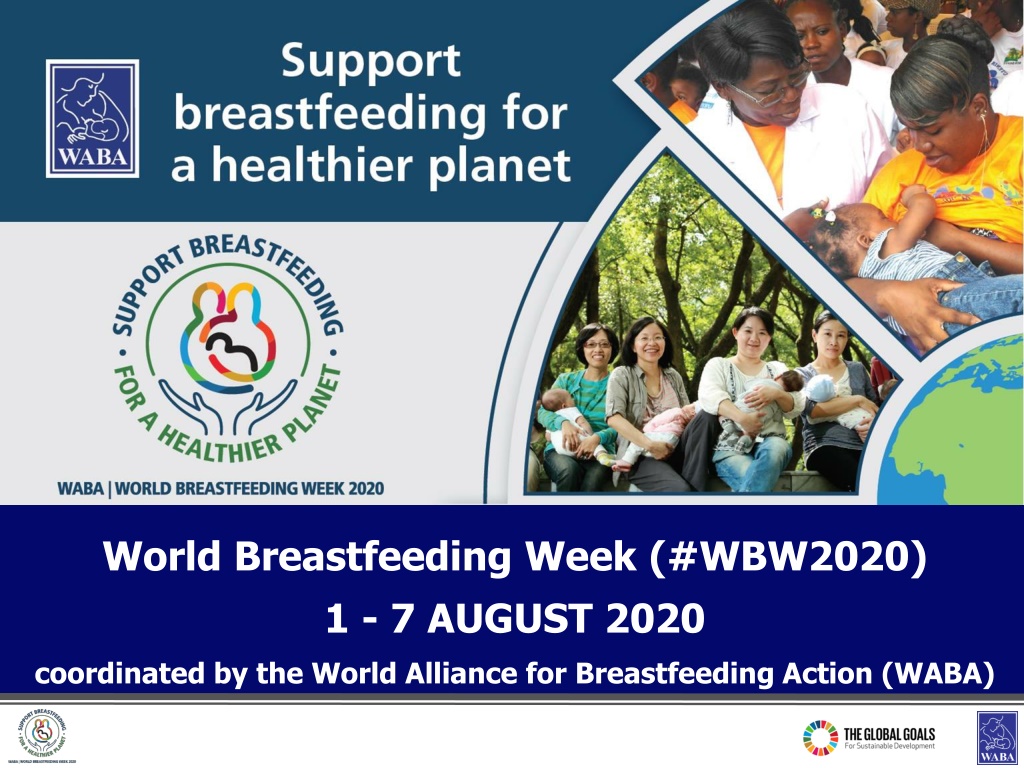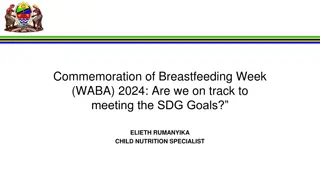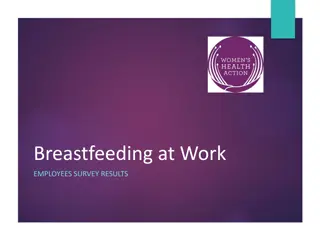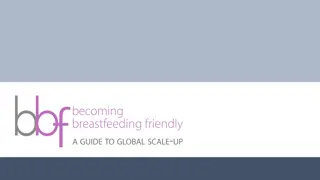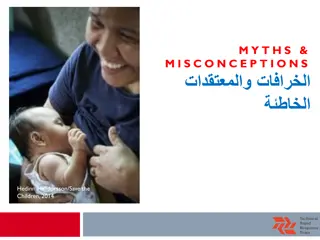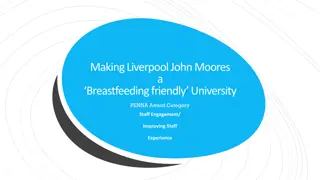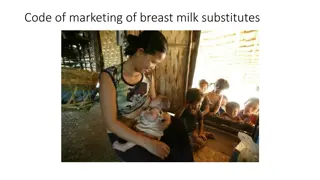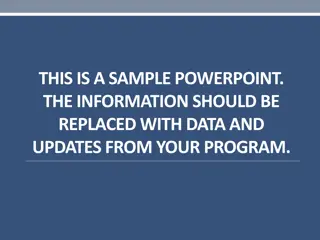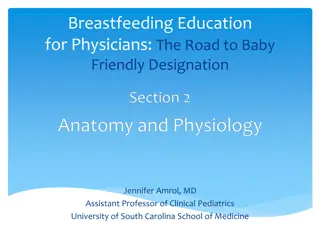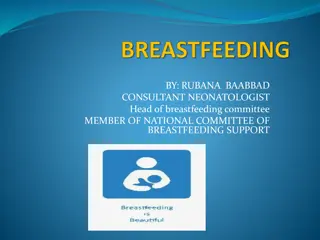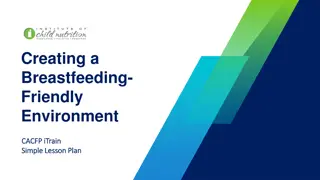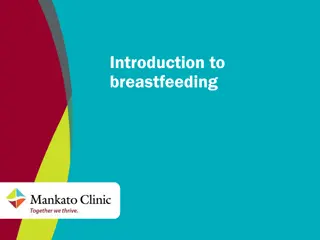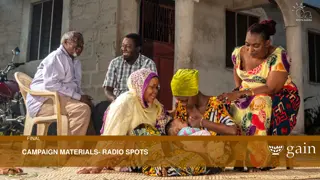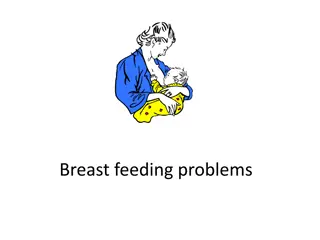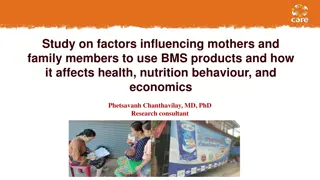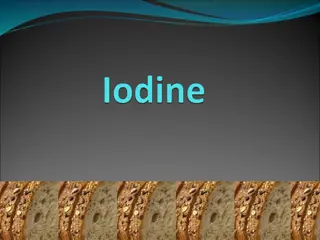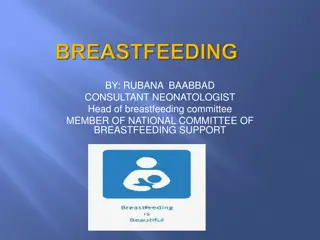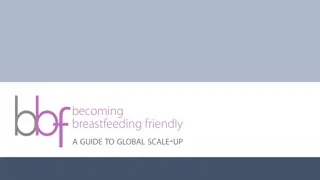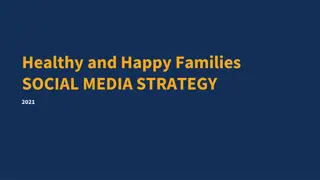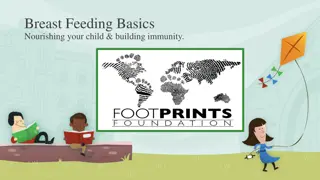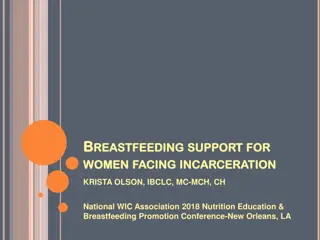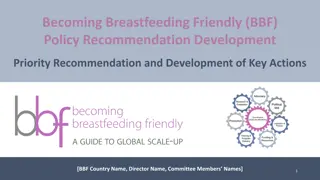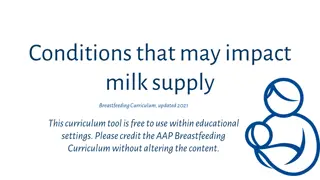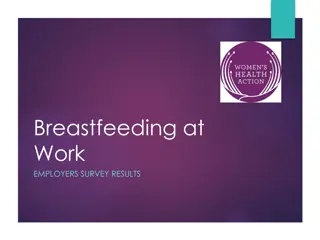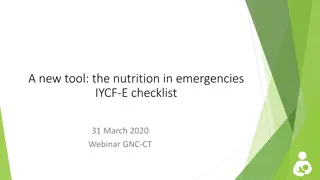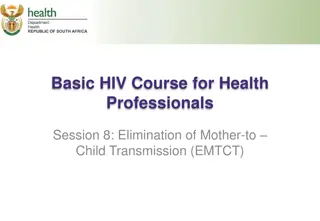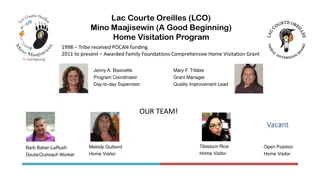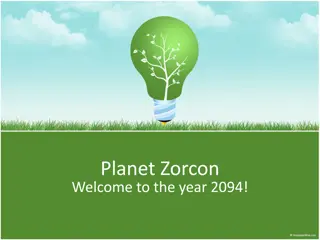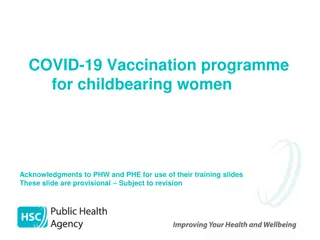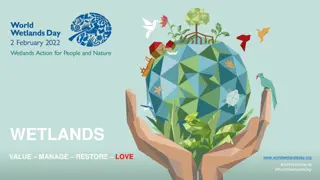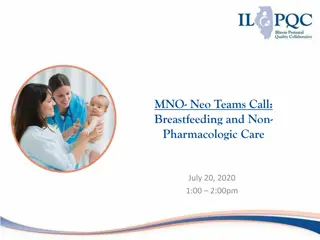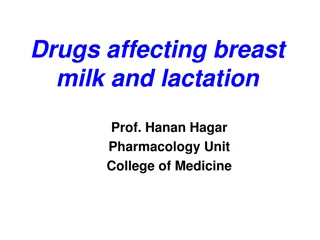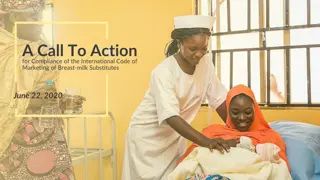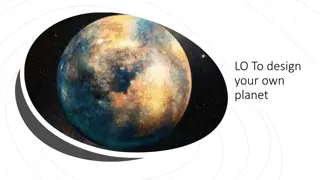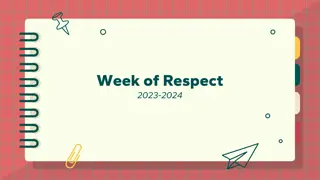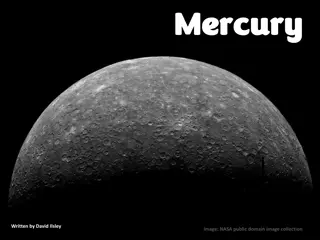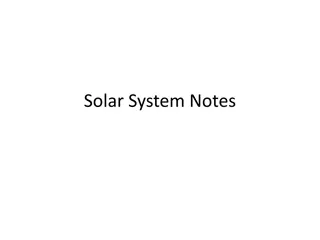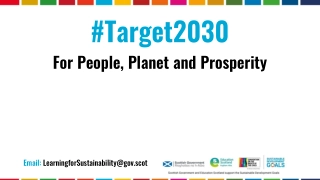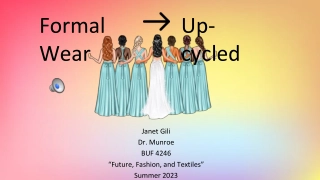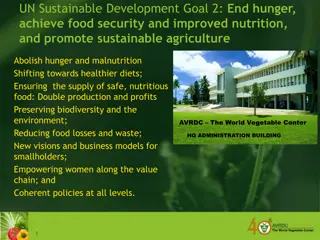World Breastfeeding Week 2020: Promoting Sustainable Solutions for People and Planet
The World Alliance for Breastfeeding Action (WABA) coordinates the annual World Breastfeeding Week campaign, aligning it with the UN Sustainable Development Goals. The WBW-SDGs Campaign focuses on the interconnected nature of breastfeeding and planetary health, emphasizing the role of breastfeeding in sustainable food systems and its impact on climate change and environmental degradation. Breastfeeding is highlighted as a vital investment in saving infant lives and fostering social, economic, and environmental well-being globally.
Download Presentation

Please find below an Image/Link to download the presentation.
The content on the website is provided AS IS for your information and personal use only. It may not be sold, licensed, or shared on other websites without obtaining consent from the author. Download presentation by click this link. If you encounter any issues during the download, it is possible that the publisher has removed the file from their server.
E N D
Presentation Transcript
World Breastfeeding Week (#WBW2020) 1 - 7 AUGUST 2020 coordinated by the World Alliance for Breastfeeding Action (WABA)
INTRODUCTION The World Alliance for Breastfeeding Action (WABA) was formed on 14 February, 1991. WABA is a global network of individuals and organisations dedicated to the protection, promotion and support breastfeeding worldwide. WABA coordinates the global World Breastfeeding Week (WBW) campaign that aims to inform, anchor, engage and galvanise action on breastfeeding and related issues. Since 2016, we have aligned our WBW campaign to United Nation s Sustainable Development Goals (SDGs). We call this the WBW-SDGs Campaign.
WBW-SDGs CAMPAIGN WABA clustered the UN SDGs into 4 Thematic Areas that relate to each other and to breastfeeding. The 4 Thematic Areas will be celebrated in cycles until 2029. 2030 will be about taking stock of our progress, overcoming challenges and planning for work beyond the SDGs. WBW2016 made links between each SDG and breastfeeding. WBW2017 emphasised the importance of working together across all the SDGs. WBW2018 cemented breastfeeding as the foundation of life. WBW2019 focused on empowering parents to enable breastfeeding. World Breastfeeding Week 2020 (#WBW2020) highlights the links between breastfeeding and planetary health.
#WBW2020 The interconnected nature of people and the planet requires that we must find sustainable solutions that benefit both. We can reduce our carbon and ecological footprints starting with how we feed our babies. Breastfeeding is one of the best investments in saving infant lives and improving the health, social and economic development of individuals and nations. Protection, promotion and support of breastfeeding are all important strategies and we have to collaborate with actors within and beyond the breastfeeding movement.
Climate change and environmental degradation are some of the most urgent challenges facing our world today. Our food production systems and consumption patterns are significant contributors to climate change and environmental degradation
Depletion & destruction of natural resources and an increase in the emission of major GHG are at their highest levels for at least the past 800,000 years. Although there have been many advances in global health in the past few decades, there are several emerging challenges for example natural disasters, infectious disease outbreaks such as the ongoing COVID-19 pandemic as well as a lack of adequate health systems. Breastmilk is the first food that we consume and is a critical part of a sustainable food system. On the other hand, feeding with breastmilk substitutes (BMS) contributes to the problem and is a growing phenomenon.
Scaling up optimal breastfeeding could prevent more than 823 000 child & 20 000 maternal deaths each year. Not breastfeeding is associated with lower intelligence & results in economic losses of about $302 billion annually. Only about 40% of all babies born annually are exclusively breastfed until 6 months & 45% continue any breastfeeding for up to 2 years. Often, there is a lack of support to breastfeed, whether in the health system, workplace or community.
Direct breastfeeding & hand expression of breastmilk are efficient in terms of reducing waste & saving energy & other resources. Dairy farming typically releases substantial amounts of methane & other GHG. Additionally, the manufacturing, packaging, processes of BMS requires energy & water. All of this impacts the environment & feeding one million babies with formula for two years requires, on average, approximately 150 million cans of formula. distribution & preparation
Sustainable development meets the needs of the current generation without compromising future generations. We must intensify the conversations, call for more robust research, and engage all relevant sectors to take action.
Align national & international policies and guidance on breastfeeding & IYCF with the SDG agenda & other environment/climate initiatives. Ensure that a public health perspective is taken to strengthen BFHI & breastfeeding counselling among the general population including during emergencies. Raise awareness among decision-makers to recognise the contribution of breastfeeding environmental sustainability. to food security & Advocate for policies aimed at reducing carbon emissions from the BMS industry. SDGs as a framework for planetary health Ensure that the International Code of Marketing of Breastmilk Substitutes & relevant WHA resolutions are fully implemented & monitored. Enact paid family leave & workplace breastfeeding policies based on the ILO Maternity Protection Convention C183 as the minimum standard.
Advocate implementation of better policies & interventions to provide families the support for breastfeeding that they need, especially breastfeeding counselling. for increased financing, monitoring & Inform communities about the impact of formula feeding on the environment using a variety of communication techniques and influencers. Sensitise journalists and the media to stimulate public debate on the links between breastfeeding & the environment/climate change. Allocate climate/environmental impact of BMS. resources for additional research on the Societal support Collect systematic data on the impact of different IYCF policies & programmes in emergency situations.
Advocate for all women/parents with young children to have access to skilled breastfeeding counselling from health facilities & communities. Implement the revised BFHI 2018 guidelines in all health facilities including private hospitals. Allocate resources for community groups to be able to provide basic breastfeeding counselling & other forms of support close to women/parents. Breastfeeding counselling is essential
Advocate for ongoing antenatal & postnatal breastfeeding counselling contact to sustain optimal breastfeeding. Create a warm chain of support for breastfeeding by identifying key actors & their roles in the first 1000 days and linking them to each other. Engage domestic responsibilities & care for the breastfeeding dyad. fathers/partners & family support to share Join a mother/parent support group & share experiences with others in the community to normalise breastfeeding. Ongoing support across the first 1000 days Develop creative ideas for virtual & online activities to engage target audiences in #WBW 2020.
Invest in consistent training programmes for different levels of health professionals, community health workers & lay/peer supporters. lactation consultants, Advocate for placement of appropriately-trained & skilled staff at various levels: professionals, lactation consultants and resource persons. peer supporters, health Promote scaling up of existing breastfeeding training tools and programmes including online, digital & e-learning methods, as well as face-to-face clinical & other practical teaching. Building knowledge and skills at all levels Engage school children, students, youth & social media influencers to spread awareness of the importance of breastfeeding for planetary health.
Promote the use of evidence-based international IYCF guidelines to develop national action plans & communication messages. Ensure that breastfeeding protection, promotion & support is specifically included in national emergency-preparedness & response plans. Inform all health workers, community groups & the public about the importance of breastfeeding in national- & community preparedness plans. Reinforce support for breastfeeding families that targets all members of the family & the community by developing appropriate & consistent communication messages. Emphasise hand expression of breastmilk, appropriate use of breastpumps where safe, preparation, cup feeding, techniques to maintain breastmilk supply, relactation & wet nursing. correct breastmilk storage & Leaving no one behind Ensure that donor human milk is available for babies who need it through human milk banks or other appropriate community initiatives.
A warm chain of support creates an enabling environment that empowers all women/parents to breastfeed optimally. Together, we can achieve a win-win situation for humanity and the planet.
5 WAYS TO CELEBRATE #WBW2020 1. Share on our social media platforms: a. your breastfeeding experiences and support needed during the COVID-19 pandemic b. your thoughts about the links between breastfeeding and environment/climate change 2. Pledge & Report your #WBW2020 activities (physical and/or virtual) 3. Tune in to our #WBW2020 podcasts and send us your questions/comments 4. Participate in the #WBW2020 Ask Me Anything (AMA) 5. Follow the WBW website and social media platforms (Facebook, Twitter & Instagram) for more activity ideas and updates Tell us how you will engage to celebrate #WBW2020!
